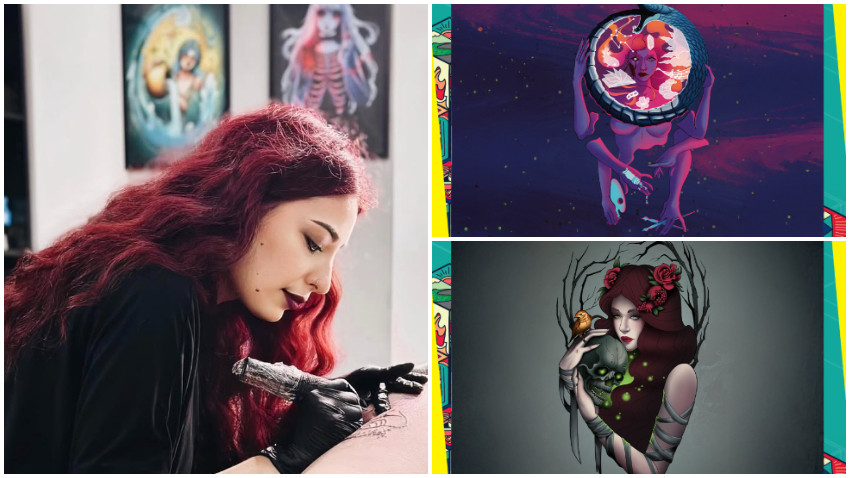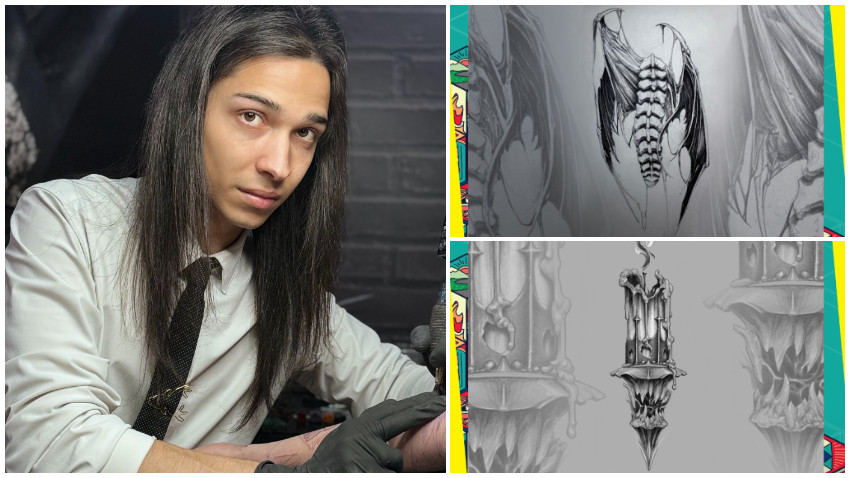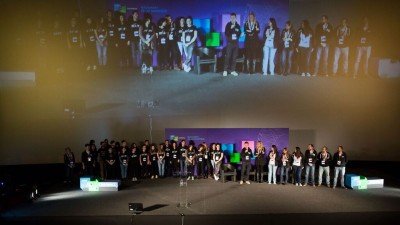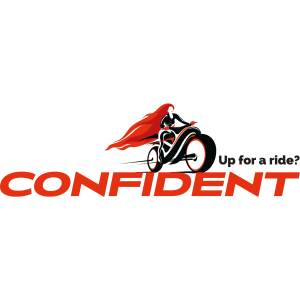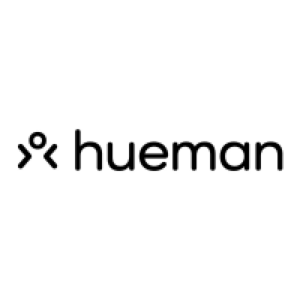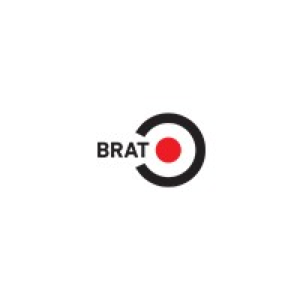Inflation, geopolitical tensions, social unrest, a media industry struggling to survive, technological revolutions. The role of PR professionals is changing, believes Julija Jegorova, Founder Black Unicorn PR. Working in PR isn't just putting words together, it's not a commodity. At the intersection of clients from different industries, consumers, communities and journalists, PR professionals must maintain authentic and consistent communication amidst the non-stop noise of 2023.
”PR pros can’t be lazy. They really need to cater to journalists as if they were working on the same team, understand what is newsworthy to them, and avoid occupying their time with irrelevant information. At best it will be ignored, at worst you will gain a reputation for wasting their time”, says Julija.
Julija Jegorova was recently in Romania, at How to Web 2023, a conference that brought together over 2,500 participants from 26 countries. On this occasion, we talked about the challenges of the PR industry, the pressure to keep up with technological change and the relationship between PR and the press in 2023.
The biggest challenges in 2023 in the PR industry
The PR industry is currently navigating through a very dynamic (and exciting!) era, marked by rapid tech advancements and constantly changing consumer behaviours and expectations.
The world is going through geopolitical and economic challenges that affect us all, including the private sector. The war in Ukraine, post-pandemic inflation, the cost of living crisis and a recession that seems to be looming for ages. But these have not changed the very high expectations of consumers when it comes to climate change and social matters. Companies need to navigate the dual challenge of taking the hard choices that protect their economic interests and communicating to enhance trust. It’s more important than ever that PR professionals be given a seat at the table.
Important trends
In the PR industry, a lot of trends are changing the way we work.
On the macro level, we already mentioned the economic and political factors trickling down into how companies need to, or are forced to, communicate.
Another big trend is how the media industry itself is evolving. We have now heard for years that many media outlets are disappearing. A lot of these, from the print days, have found it impossible to monetise in the digital era. And although new media outlets like the Huffington Post, Morning Brew and The Athletic have emerged, overall, there are a lot more PR professionals than journalists. That ratio has been getting worse. What that means is that targeted approaches are getting more and more critical. PR pros can’t be lazy. They really need to cater to journalists as if they were working on the same team, understand what is newsworthy to them, and avoid occupying their time with irrelevant information. At best it will be ignored, at worst you will gain a reputation for wasting their time.
On the micro level there is obviously the role of technology, as generative AI finds its role within professional services industries and within companies’ marketing and communications departments. Every single role in every single department is subject to some changes - everyone is wondering how ChatGPT and other tools can help them. For a while, marketers were worried about AI replacing them. This concern is more relevant for some jobs than others. In PR, no AI can replace the role of humanity. Connecting different human stakeholders on the client side and media side effectively requires that human touch. PR work is not simply putting out words, it’s not a commodity. And, like in most jobs, good collaboration often thrives more when there are good human relations.
How has your perspective on PR changed
In the beginning of my career, I perceived PR primarily as a vehicle for managing public perception in a commercial sense. In business, revenues can go up or down. In PR, it seemed the image of a company or person could improve or worsen, brand recognition could grow or shrink. I’ve now witnessed a lot of companies perform their communications in different ways. Some effectively, some less so. Some horribly. But what stands out are the ones that are able to externalise their DNA and combine their good strategies and tactical implementations with much-needed dose of authenticity, transparency and accountability.
Also, a lot of people think of PR as a purely commercial activity. But it’s broader than that. On a higher level, companies and individuals need to communicate via PR methodologies to discuss the future. Conversations around how industries should move forward with new best practices, their influence on regulators, spreading consumer needs and wants, a lot of that is massively influenced by corporate external communications. One of the clearest cases in the startup world is the open banking industry, a niche which leveraged fintech and financial media and thought leadership by industry leaders to engage with regulators and advance the open banking regime.
Today, I see my role not just as a communicator helping brands and companies succeed, but also seeking to help them shape the future to benefit their entire industries, the consumer, the community and wider society.
Fantasy & facts
There's a common narrative swirling around: "PR is easy", "PR is glamorous" or "anyone can do it". By the end of the day all we do is chat with journalists, push stories and attend cool parties, no?
To be honest, even when I started working in PR in 2010 I was expecting a life with a somewhat significant amount of glam (thanks to all the wrong portrayals in the movies!). But now, having been immersed in this world for over a decade, it is more of a fantasy than a fact.
Experience has also taught me a lot about the many sides of PR. This job is a demanding, often painfully stressful field that requires an extraordinary degree of adaptability, foresight, and precision.
The human component is huge. PR professionals sit between different stakeholders, need to manage their needs, expectations, and depend on them for crucial information and updates to drive projects in a timely fashion. In many ways, PR professionals are constantly between a rock and a hard place, so mental fortitude is key. At some point, your bosses or clients will get disappointed, journalists will get frustrated, and they might send negative energy your way, even if you did everything in your power to succeed. PR pros need to always keep that in mind to protect their mental health.
The pressure to keep up with all the technological changes
It’s really important to keep learning all your life to keep up with new technology. It is definitely not worth demonising new tools. Most PR professionals in the agency world today couldn’t live without collaborative, cloud-native tools. Google Docs, Slack, Asana, you name it. They all save time and let us work more efficiently. At this stage, most PR professionals in my network agree that ChatGPT is enhancing what we do by saving us time in certain tasks. But that human component is irreplaceable.
I think the key to not becoming overwhelmed is to try these tools without any strong commitment. They need to work for your team, for your style of work. Get them, test them, and slowly incorporate them into your methodology. You need to be able to feel that they are reducing workload or enhancing productivity. If the opposite is true, ditch them.
I wouldn’t want to abstain from mentioning how important it is to go to industry events and online seminars. We learn a lot more from, and pay a lot more attention, when it’s humans speaking to us directly. Meet up with fellow professionals and ask them all these questions. Survey them and build a more complete map to guide you. Similarly, read a lot!
The biggest challenges for brands & agencies in 2023
For brands (no matter how big or small) it is crucial to maintain authentic and consistent communication amidst the non-stop noise in 2023. In addition, the changing global economy is also something that could predict upcoming challenges. We already saw how large tech companies recalled workers to the office after a few years of remote work during the pandemic, and how they communicated about it. We are now also witnessing unprecedented global inflation, and that is also an area where some have communicated better than others.
In the smaller side of the market, we are seeing that the barriers to entry to setting up new companies of any sort are extremely low. However, doing a good job with brand and public perception, despite all the tools available, is something a lot of startups and small companies struggle with. These companies need to generate trust and differentiation if they are to survive. I’m a believer that a more trusted image is a way to grow more sustainably.
For agencies, the challenge lies in innovating and diversifying PR solutions to cater to the ever-changing needs of clients, ensuring adaptability to the dynamic digital landscape without diluting the quality of the output or getting lost in the sea of new tech tools. Developing integrated communication strategies that align with clients' values and resonate with diverse audiences is the need of the hour.







